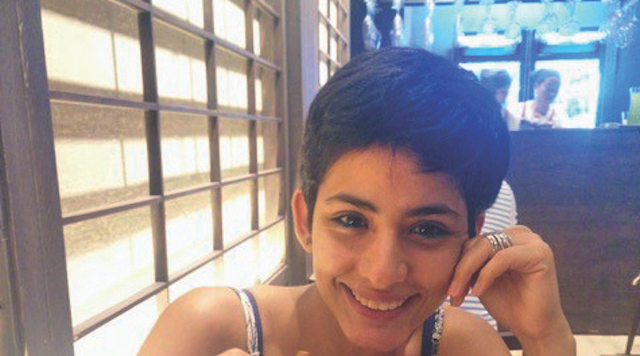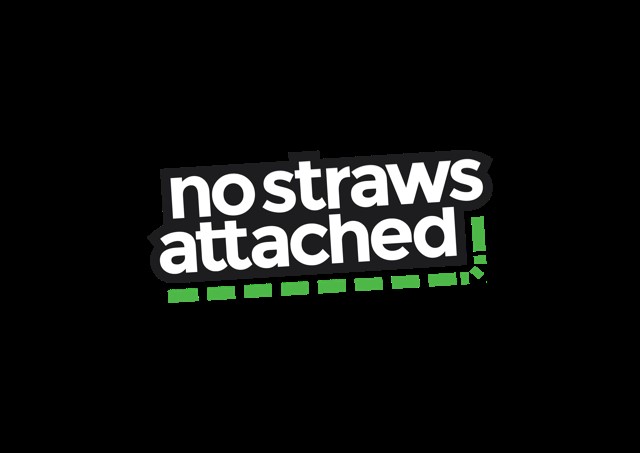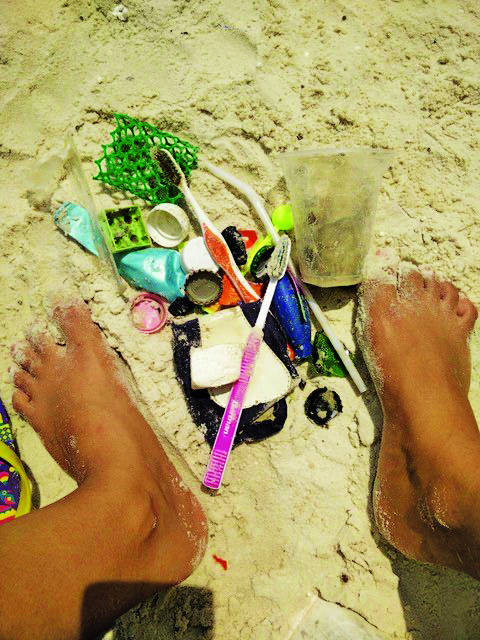Environmental activist Mallika Arya on fighting against plastic pollution, one straw at a time.
By Ashima Sethi
Plastic pollution is one of the world’s most pressing issues. Landfills have begun to overflow with waste, and oceans are swallowed up by millions of microplastics, leaving wildlife to suffer the consequences of the choices we have all carelessly made. And so, it’s time to take responsibility. The No Straws Attached campaign spearheaded by passionate environmentalist Mallika Arya, offers simple steps to minimise our pollution footprint. Where better to start than through trouble-free ways that can make a bigger difference than you ever thought would?
To what extent has plastic pollution become an important issue?
Plastic pollution is a reflection of how our consumption patterns are affecting the environment, making the issue incredibly important and demonstrating that a linear system on a finite planet is not sustainable. Nowadays, even remote islands are being impacted by waste, so much so that animals are choking to death. Plastic has also been found in drinking water samples, making it an issue we can’t ignore.
What is the No Straws Attached campaign?
The campaign focuses on two things. It’s aimed at spreading awareness among consumers that have the right to say no to single-use plastics, while also reaching out to restaurants, bars and cafés to encourage businesses to stop handing out plastic straws. We also advocate for using alternatives like reusable steel or bamboo versions.
What inspired you to initiate this campaign?
The motivation behind it was simple. My friends and I were tired of requesting for drinks without straws, only to still be given straws. We wanted to create a movement that encouraged people to participate until no straws became the norm. Such campaigns have been successful around the world but it remains new in Asia. I believe everyone needs to realise the consequences of our ‘use and throw’ culture.
How has the campaign grown so far and where would you like to see it in the following years?
We’ve managed to spread the campaign across seven cities in India through a network of volunteers, friends and family. We’re currently in talks with restaurants in Thailand and Mexico, so we do want to reach as far and wide as possible.
How do you plan on expanding the campaign’s influence?
We’re lucky to live in a world highly connected by social media. This has allowed us to spread our message across borders.
What other initiatives can we adapt into our lives to limit plastic waste?
Our lives are so focused on convenience that we need to be more aware of the impact of our decisions. Plastic pollution is such a large problem that many believe there is nothing we can do to stop it. However, if we all take small steps towards driving change, it will happen.
When I took a gap year to travel in 2016, my goal was to be a zero-waste traveller. I’ve continued using the same principles in my daily life. They are as follows:
• I carry a mason jar with me and I use it for coffee, tea and smoothies to help me avoid single-use cups and lids.
• I use a steel container for leftovers and when I buy food, in order to avoid takeaway containers.
• I carry my own cutlery set to avoid single-use plastic versions.
• I use biodegradable pads made from bamboo.
• I use package-free soaps, shampoo bars, and toothpaste powder instead of items that come in bottles or tubes.
• I use fresh aloe vera for my skin, and opt for homemade face scrubs instead of anything bottled.
• When I shop for clothes, I go to second-hand shops and make sure to take a cloth bag for my purchases, to avoid plastic bags.
Are you involved in other environmental projects?
I recently completed an internship with the United Nations Economic and Social Commission for Asia and the Pacific in Bangkok, where I worked in the environment and development division assisting with a waste management project. I’m currently doing my Masters of Sustainability degree at the University of Sydney, where I’m involved with the University’s Food Cooperative, a student-led organisation providing students with organic and ethically-produced items. In addition to work with 2041 and the Sustainable Oceans Alliance (SOA), I also work as the Environment and Welfare Officer at International House, where I reside.
How do you balance activism with other aspects of your life?
I don’t see them as separate aspects because I’ve been able to integrate both areas into my life successfully. For example, I’m finding a part-time job but only choosing to look for responsible cafés and restaurants.
How easy is it for someone to alter their lifestyle choices to become more eco-friendly?
I believe it’s very doable as you don’t have to go zero-waste overnight. The more conscious you are about your actions, the more you can change them, which is why I try to have conversations to motivate people to pay attention. We might’ve become caught up in our own lives, but I think deep down everyone does care.
For more information, visit www.mallikaarya.com or www.facebook.com/nostrawsattached








